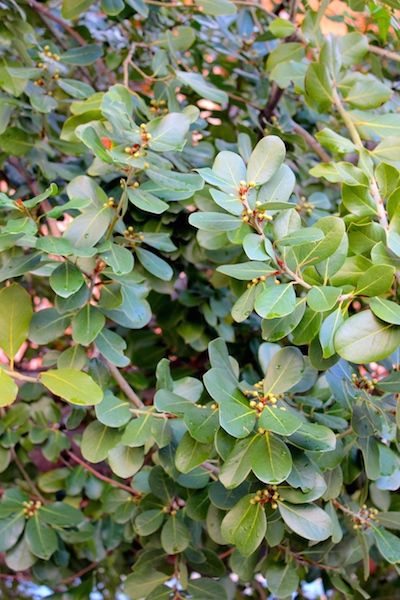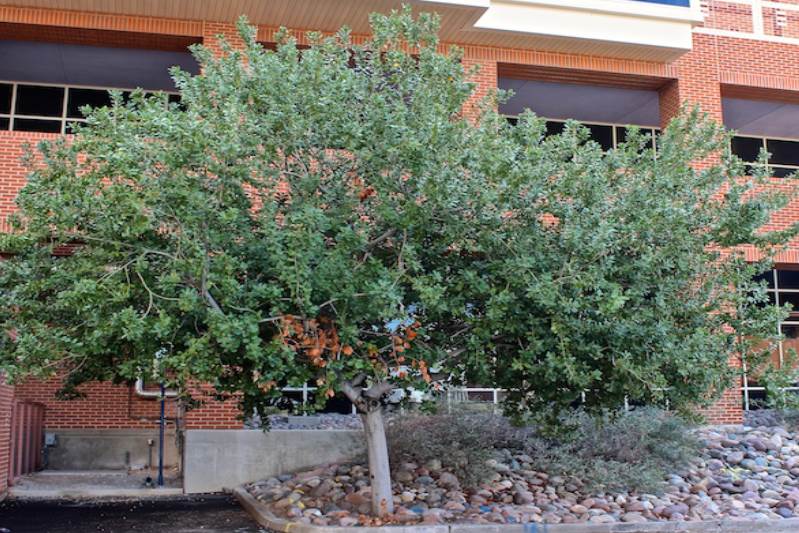
The specimen growing on our campus appears to be very well adapted to our climate as it is thriving despite limited soil volume and minimal irrigation due to adjacent parking and concrete. Since it pre-dates the Campus Arboretum records, we’re not sure where it came from but know it has become a beloved tree to many because of its color, form, and shade. It is believed to have been planted more than 20 years ago and is known as a favorite for staff of the Medical Library, since it grows on the north side of their building. Not only is it is a one-of-a-kind specimen on campus, it is also not found elsewhere in any regional nurseries.
Due to necessary construction on the site, and due to site conditions prohibiting salvage, this one-of-a-kind tree will be destroyed at the end of the month. We are saddened along with many others on campus to consider the loss of such a magnificent specimen and the loss of a proven and productive species for our climate. In an effort to preserve the species, the Campus Arboretum reached out to the Plant Sciences Undergraduate Club who are attempting to propagate cuttings of this tree in their greenhouses. Their hope is to generate new trees to plant throughout campus one day. Although the season is not ideal for rooting this species, the club has taken softwood cuttings of the tree and are inducing root formation using the growth regulator auxin to stimulate root initiation. We want to express gratitude to UA Facilities Management who have graciously agreed to delay the construction slated for this site a full 6 weeks to allow us two attempts at rooting cuttings. It is truly heart-warming to know a special tree touches on our shared values and allows our very large institution to come together to support small, but worthy causes.


